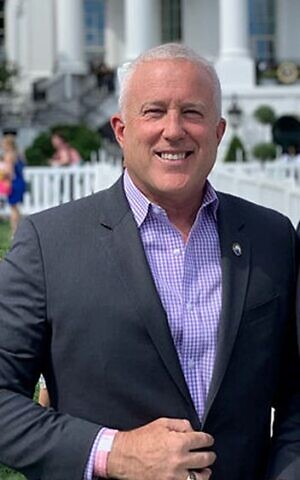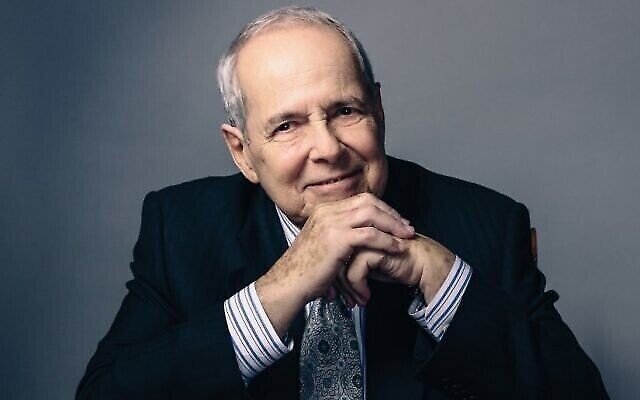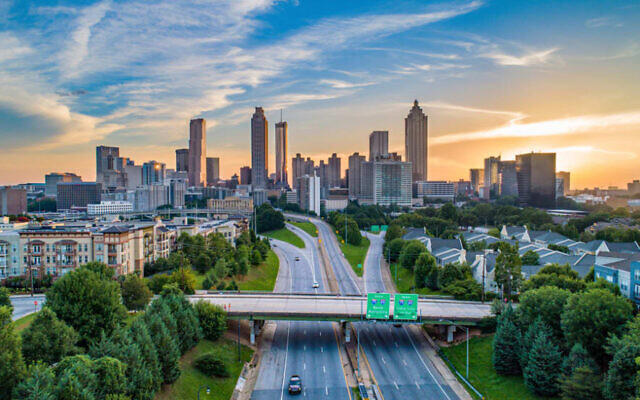Buckhead’s Future: To-Be-Determined
The question that would appear on next November’s ballot would ask: Should we stay or should we go?
Dave Schechter is a veteran journalist whose career includes writing and producing reports from Israel and elsewhere in the Middle East.
Several years ago, the Buckhead Heritage Society dug into how that section of Atlanta got its name. As best they could determine, a man named Whitley shot a deer and mounted its head on a post in the vicinity of a general store owned by a man named Irby near the modern-day intersection of Peachtree, Roswell, and West Paces Ferry roads.
Henry Irby had purchased 202.5 acres in 1838 for $650 and, as Wikipedia will tell you, the area became known as Irbyville. He apparently sold alcohol at the store, which explains references to an Irby’s Tavern. The Heritage Society found the first official record of the name Buckhead in an 1840 act by the legislature designating Irby’s house as a voting district.
The current uncertainty is whether Buckhead will remain part of the city that annexed it in 1952 or secede and become Buckhead City. (There already is a town named Buckhead in Morgan County and an unincorporated, yet census-designated Buckhead in Bryan County.)
“Leave” advocates accuse the “stay” side of hyping doom-and-gloom projections, while the latter contends that the former downplay the damage that secession would cause.

Creating that new city would require the Georgia General Assembly and the governor to approve legislation that would put a referendum on the Nov. 8, 2022, ballot. Only residents within the proposed Buckhead City borders would vote. Legislative action may come when the General Assembly convenes in January. Bills to start the process have been introduced by Rep. Todd Jones, a Republican from Cumming, and Sen. Brandon Beach, a Republican from Alpharetta. The measure is backed by Republican legislators who live outside of Atlanta, while the Democrats who represent Buckhead oppose secession.
Buckhead covers approximately 18 percent of Atlanta’s land area. From its southern end, roughly where Interstates 85 and 75 form a “V,” the new city would be bordered by the Chattahoochee River to the west, Sandy Springs to the north, and Brookhaven and DeKalb County to the east.
Jewish institutions within those borders include the Ahavath Achim Synagogue, which opened its doors on Peachtree Battle Avenue NW in 1958; Jewish HomeLife, operator of senior residences and care facilities, and Atlanta Jewish Academy. None has taken a position on the matter.
The estimated 87,000 residents of Buckhead make up about 20 percent of Atlanta’s population. More than half (51 percent) of Atlanta households earning more than $100,000 reside there. Buckhead is 77 percent white, 11 percent Black, six percent Asian, three percent “other,” and 2.2 per-cent two or more races.
Crime is the motivating issue most frequently cited by secession proponents. Buckhead is part of Atlanta Police Department Zone 2, which includes West Midtown, Lenox Park, and Piedmont Heights. Compared with the same period in 2020, homicides in Zone 2 were up 83 percent, rapes were up 93 percent, robberies down 2 percent, aggravated assaults up 33 percent, and burglaries down 40 percent. In September, Lenox Mall instituted a curfew, requiring that anyone under age 18 be accompanied by a parent or adult after 3 p.m., in response to crime in Buckhead and shootings on mall property.
Bill White, CEO of the Buckhead City Committee, says that a planned 250-officer police force will be three times the size of APD’s Zone 2 deployment. The Committee’s website declares that “A larger police presence that is allowed to do their job will decrease crime dramatically and quickly.”
Taxes are another sore point. Based on Fulton County tax records, the Atlanta Journal-Constitution reported that Buckhead accounts for 40 percent of Atlanta’s assessed property — tax revenues that would be lost to the city. According to buckhead.com, Buckhead residents pay a lower county tax rate on $1 million homes than residents in Brookhaven, Sandy Springs, or Vinings, but their city tax rate is substantially greater.

These issues are acknowledged by those who, nonetheless, favor remaining part of Atlanta, among them Jim Durrett, president of the Buckhead Coalition and executive director of the Buckhead Community Improvement District. In April, Durrett wrote in the Saporta Report: “The distress of violent crime in Buckhead and around the city is real and seems unending. The taxes that the residents of Buckhead pay to the City of Atlanta, as well as to Atlanta Public Schools, are significant, while the deterioration of city services, such as trash collection and road paving, as well as zoning ordinances that would appear to harm our neighborhoods, are unacceptable.”
Sam Massell — Atlanta’s first Jewish mayor, who served from 1970-74 — calls secession an “ill-advised proposal.” In an August op-ed in the AJC, he wrote: “I don’t want to see our city cut into several slices, believing that — in the long range — it would degrade the quality of life of the new creations and the remaining citizens. … It would destroy the community brand, which would require decades to rebuild.”
A legally-required feasibility study conducted by the Valdosta State University Center for South Georgia Regional Impact — and funded by supporters of Buckhead City — declared the proposed city to be fiscally viable. Buckhead City would manage its own police, fire department, emergency medical services, public works, parks, municipal courts, and zoning, while maintaining current services for water, sewer, trash collection, and Fulton County Library.
An analysis prepared for the anti-secession Committee for a United Atlanta (CUA) said: “Over-all, if the Buckhead area of the City of Atlanta de-annexed from the city, both entities, as well as APS [Atlanta Public Schools], would stand to lose financially, economically, and socially.” The report calculated that the city and schools would take a hit, even after factoring in savings from services they no longer would provide in Buckhead City. There remain questions about whether students would continue to attend APS’s five elementary, one middle, and one high school in Buckhead.
White’s statement in response called the CUA report “classic doomsday drivel from the usual suspects.” The Buckhead City Committee’s website suggests that Atlanta will benefit by being a smaller, “easier to manage” city.

Fourth-generation Atlantan Reg Regenstein, who has lived in Buckhead since 1957, told the AJT: “I just do not see any advantage in staying in Atlanta and being ruled by people who want to change our residential zoning and ruin our property values while forcing us to pay ever increasing and exorbitant property taxes.”
Regenstein offered “a possible solution that MIGHT work and please both sides, or at least be acceptable.” If the legislation passes and polls suggest that cityhood might win a referendum, “this could allow us to negotiate with Atlanta leaders, who generally do not like us, from a position of strength, on such issues as crime, taxes, and protection of our tree cover,” he said.
On the other hand, “if secession does actually take place, an alliance/partnership, a sort-of Northern Alliance, with our neighbors in Sandy Springs, Brookhaven, Alpharetta, Vinings, Dunwoody, etc., might be feasible, which could ameliorate some of the problems that would arise, like schools and police. We have plenty of money we could bring to the table,” Regenstein said.
- Dave Schechter
- News
- Local
- Bill White
- Buckhead
- Sam Massell
- Reg Regenstein
- Buckhead City
- Buckhead Heritage Society
- Whitley
- Peachtree Road
- Roswell Road
- West Paces Ferry Road
- Henry Irby
- Irby’s Tavern
- Georgia General Assembly
- Rep. Todd Jones
- Sen. Brandon Beach
- Cumming
- Alpharetta
- Atlanta
- dunwoody
- Chattahoochee River
- Sandy Springs
- Brookhaven
- DeKalb County
- Ahavath Achim Synagogue
- Peachtree Battle Avenue NW
- Jewish HomeLife
- Jewish institutions
- Vinings
- Fulton County
- atlanta jewish academy
- Atlanta Police Department Zone 2
- West Midtown
- Lenox Park
- Piedmont Heights
- Lenox Mall
- Buckhead City Committee
- Jim Durrett
- Buckhead Coalition
- Buckhead Community Improvement District
- Saporta Report
- City of Atlanta
- Atlanta Public Schools
- Valdosta State University Center for South Georgia Regional Impact
- Fulton County Library
- United Atlanta (CUA)
- Northern Alliance




comments